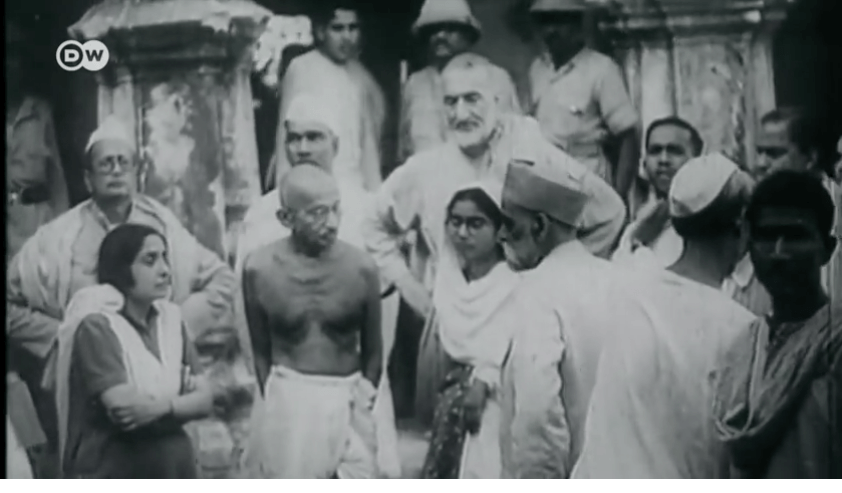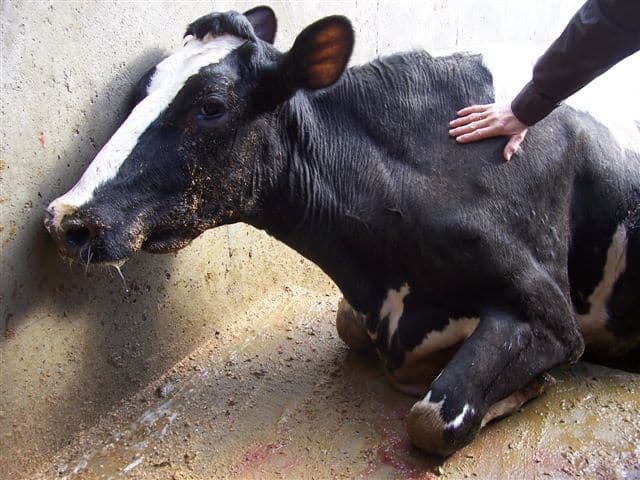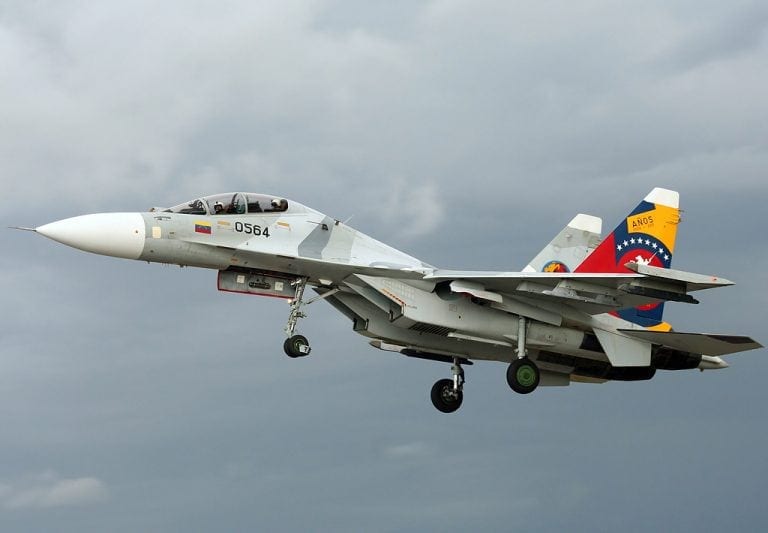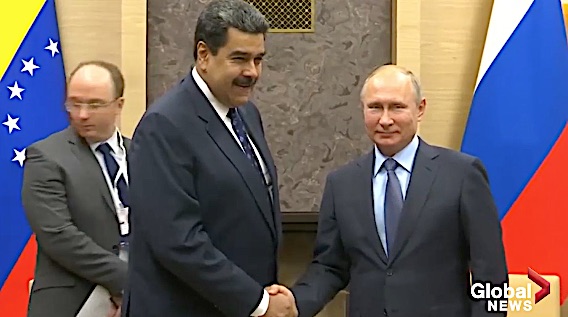John Spritzler
NewDemocracyWorld.org
 Originally posted on June 30, 2013
Originally posted on June 30, 2013
[dropcap]B[/dropcap]efore you decide that you hold to the philosophy of nonviolence, you need to know some things about that philosphy that you probably did not learn from whatever pamphlet or training session made you think you follow that philosphy.
The founder of the philosophy of nonviolence, Mahatma Gandhi, gave a very important interview (also cited here) with his biographer, Louis Fischer, reported in his The Life of Mahatma Gandhi (1950) (pg. 435 paperback edition):
“Hitler,” Gandhi said, “killed five million Jews. It is the greatest crime of our time. But the Jews should have offered themselves to the butcher’s knife. They should have thrown themselves into the sea from cliffs. I believe in hara-kiri. I do not believe in its militaristic connotations, but it is a heroic method.”
This is what the philosophy of nonviolence preaches. Do you agree with it?
Do you say you believe in nonviolence simply because you don't think violence is a useful tactic in situations you anticipate being in personally? Please understand that this belief of yours, while perhaps quite true, does not make you a follower of the philosophy of nonviolence. There is a huge difference between thinking that violence is inappropriate in a particular situation versus thinking it is a moral failure to ever use violence even in self defense, as the philosophy of nonviolence does.
Perhaps you believe that the philosphy of nonviolence allows for violence in self defense? Is this why you feel comfortable in saying that you subscribe to the philosphy? If so, you need to ask yourself if you consider it a moral failing to use violence in self defense, because Gandhi most certainly did.
Do you believe it was a moral failure when Jews of the Warsaw Ghetto violently fought the German troops carrying out Nazi orders to exterminate them? Was it a moral failure when the French Resistance used violence to fight the German occupation of France--an occupation that involved rounding up Jews and other French people and sending them to die in concentration camps? Is it a moral failure when a mother shoots a man to protect her children from being kidnapped or molested? Is it a moral failure when a person fights back violently (even perhaps lethally) against the one who is raping them? Gandhi said it was indeed a moral failure.
Sometimes you hear about Gandhi supporting violence in self defense. People will take a quotation from his "The Doctrine of the Sword" out of context. It reads:
"Thus when my eldest son asked me what he should have done, had he been present when I was almost fatally assaulted in 1908, whether he should have run away and seen me killed or whether he should have used his physical force which he could and wanted to use, and defended me, I told him that it was his duty to defend me even by using violence."
But the full context of this quotation shows that Gandhi is merely saying that while using violence is a moral failing* even in self defense (or defense of one's father's life), nonetheless if one is going to be a moral failure then at least avoid the worst moral failing, which is cowardice--the refusal to oppose injustice, even to oppose it with violence, out of fear for one's personal safety. Thus Gandhi's sentence immediately preceding the above quotation reads: "I do believe that where there is only a choice between cowardice and violence I would advise violence." But where, exactly, is there "only a choice between cowardice and violence?" It is when a person lacks the moral strength to use nonviolence. Gandhi says in this same article, "Nonviolence in its dynamic condition means conscious suffering." Thus, if one lacks the moral strength to choose "conscious suffering" (as, for example, Jews committing collective suicide) then the only remaining choices are violence or cowardice, and Gandhi says cowardice is the worst choice. Violence in self defense is wrong, but not as wrong as cowardice. Is this the philosophy you subscribe to?
If you subscribe to Gandhi's philosophy of nonviolence, then you have an elitist attitude towards people who fight their oppressors with violence when it is necessary. Your attitude is to look down on them as not being as moral as yourself, who you hope would only use nonviolence (and its conscious suffering) if you were in their shoes. If you say, "Oh no, I am not an elitist that way; I admit I might myself fail morally and resort to violence in their situation," then where does that leave you? Your philosophy is that other people should accept conscious suffering, but if you were in their situation you probably wouldn't. That's called the philosophy of hypocrisy. Let's face it, if you subscribe to the philosphy of nonviolence, then you've got to be willing to say that the Jews of Europe should have committed collective suicide, and it was a moral failing on their part that they didn't. I find it nauseating to even write such a statement. Can you proudly say it out loud? Try it. I dare you! You've got to be able to say that a woman who shoots the attempted kidnapper of her baby is a moral failure for having not, instead, chosen consciously to suffer the loss and perhaps death of her child. Go ahead. Say it. Can you?
Or do you wish to reconsider your adherence to the philosophy of nonviolence?
Let me help you make the break from Gandhi's absurd philosophy. It might help you to know that the only way advocates of nonviolence can claim that "it works" is by using some sleight of hand rhetorical tricks. Here's how it works. The supposed power of nonviolence is what Gandhi called "moral suasion." The idea is that when lots of people demonstrate the sincerity of their opposition to oppression, by willingly accepting conscious suffering, then this creates "moral suasion" that causes the oppressor to stop oppressing. If you were ever in a nonviolence training session, you no doubt learned to go limp when the police come to arrest you, and to willingly go to jail and so forth. This is your conscious suffering, which is what makes "moral suasion."
Here's how the nonviolence advocates argue that moral suasion works. They define "works" to mean replacing one oppressor with another. Thus they say nonviolence "worked" in India because nonviolence (actually there was substantial violence too, but we'll ignore that little detail) made the British leave. What they don't say is that when the British left, the Indian people remained terribly oppressed by a native ruling elite. Gene Sharp is a famous nonviolence preacher today [whom the ruling class loves and promotes] and he argues that nonviolence can cause "regime change." But "regime change" is a far cry from ending class inequality and elite oppression, as anybody paying attention to Egypt recently can attest.
The theory of "moral suasion" is based on a fallacy. The theory is that the oppressor, deep inside, knows that what he or she is doing is morally wrong. Moral suasion supposedly taps into that hidden goodness in the oppressor. The fact, however, is that oppressors believe that what they do is morally right, in fact necessary to keep the world from going to hell in a handbasket. That's how the slave owners in the American Confederacy felt during the Civil War. There is no evidence to the contrary, and overwhelming evidence to support this view. The Nazis thought they were waging the good war, to save the German Volk from a dire threat by the Jews. Dick Cheney and Henry Kissinger, I am quite sure, do not lose sleep at night for their war crimes. Nor does Obama.
Here's something else that may help you make a break from your nonviolence philosophy. I'm guessing that part of your attraction to nonviolence is your fear that when oppressed people take up arms against oppression it only leads to them using violence against innocent people. Better, therefore, to prevent ordinary people, even when oppressed, from using violence against the oppressor. Nothing personal, but this notion is elitist BS! The ruling class wants you to have this elitist BS in your head because the elite love the philosophy of nonviolence--for oppressed people, not themselves, of course. When workers and peasants fought violently against the fascists in the "Spanish Civil War" (better named the Spanish Revolution) they didn't kill innocent people. They didn't develop a crazed taste for blood. The stories in your head about Ropespierre and Lenin and Stalin killing innocent people are largely true, but these were not ordinary people but new rising, and very anti-democratic, elites. The fault of ordinary people time after time is that they have not used violence when they should have. The ruling class wants us to be afraid to use violence against them. They want us to believe nonsense. They fill our heads with warnings such as "violence begets violence." They tell us that if one uses violence against evil one becomes evil oneself, as if a mother shooting a kidnapper becomes a kidnapper, and a person violently resisting a rapist becomes a rapist, and a slave violently resisting a slave owner becomes a slave owner.
Here's another fact that may help you make the break. You may have adopted nonviolence out of a fatalistic belief that it is not really possible to end oppression, and therefore the most important thing is to adapt to the reality of oppression by at least avoiding doing anything nasty (i.e. violent) oneself. This fatalism is based on the idea that almost all people are selfish and so there will always be oppression and injustice; there just aren't enough really good people in the world to end oppression. This idea is also ruling class-sponsored BS. Very few people share the disgusting values of the ruling elite: treat others like dirt to make a profit, dominate others to make many people poor so a few can be rich, pit people against each other with lies and manipulation (like Orwellian wars) to control them, pollute the earth--like BP did the Gulf of Mexico--to make a buck.
Another fact will help you ditch an absurd philosophy: You know the difference between wishing something is true and believing it is true, right? Do you believe in Santa Clause and the Tooth Fairy? Do you believe that manna will fall from heaven? Of course not. As much as you might wish these things existed, you know they don't. Then how hard is it for you to admit that there is a big difference between a) wishing (as we all do!) that--without any violence whatsoever--the plutocracy that rules the United States can be removed from power and b) believing it is true? Try it; it's really not that hard to put the wishing aside and act according to what you actually believe. People who insist that "moral suasion" can remove oppressors from power are acting on the basis of pure wishful thinking. They are acting like children. They need to grow up!
Yes, a revolution to remove the plutocracy from power and create an egalitarian society without oppression will involve some violence, inevitably. But if a revolution is ever going to succeed in the United States it will be because a huge revolutionary movement develops and it gains the support of a critical mass of members of the military, so that when ordered to attack the movement those soldiers refuse and use their weapons to defend the movement from those who would attack it violently. This is what happened in the February, 1917 revolution in Russia that led to the Czar abdicating. A similar thing happened in Iran, which is why the Shah, even though he thought he had the largest military force in the region, had to flee the country. A revolution most certainly does not mean half the population shooting the other half.
Do you want to learn to live in a world of oppression, or build a movement to end oppression? The philosphy of nonviolence is not geared to defeating oppression, but rather to something else--avoiding getting one's hands "dirty" with violence. Given the choice between defeating oppression and avoiding violence, it opts for avoiding violence. You don't really make this choice, do you?
There is a better philosophy than the philosophy of nonviolence. It is a philosophy that says:
a) Most people oppose oppression and therefore we can build a mass movement to successfully abolish oppression.
b) One of the highest obligations of morality is to abolish oppression.
c) Ending oppression should be done with the minimal violence but it is immoral to allow oppression to continue in order to avoid all violence entirely.
e) Violence that is not in self-defense (for example violence directed at non-combatant civilians) is counter-productive, and hence immoral, because it only isolates one from potential allies and allows the oppressor to gain support by pretending to protect people from the anti-oppression movement.
f) Sometimes violence in self defense is very productive. For example the Vietnamese gained support from American GIs because in using violence to defend themselves against the American invasion they made those GIs start to wonder (there is nothing like being shot at to make one concentrate on understanding why it is happening) why so many ordinary Vietnamese were fighting them if, as they had been told in boot camp, they (the GIs) were in Vietnam to defend freedom. When people violently resist oppression they make soldiers of the oppressor (and civilians of the oppressive government) pay attention and learn the truth about that oppression.
*Postscript: A reader of this article challenged me to prove that Gandhi viewed the use of violence to resist oppression as a "moral failure." Here is my reply:
From Gandhi's The Doctrine of the Sword (all quotations here are from it) he refers to "The religion of nonviolence," and hence makes it clear that the topic is about morality, not mere practicality. He says, "Nonviolence in its dynamic condition means conscious suffering." He adds, "Nonviolence is the law of our species as violence is the law of the brute." He adds this of the Rishis, who discovered the law of nonviolence: "Having themselves known the use of arms, they realized their uselessness and taught a weary would that its salvation I may not through nonviolence." [There is a typo in the online version where it reads "I may not" but the meaning is clear.]
From the above it is quite clear that Gandhi is contrasting his religion (morality) with that of those who practice violence and are therefore acting as a "brute," and who are not taking the path that leads to "salvation," which requires "conscious suffering" that they are unwilling to make. If this isn't a contrast between his philosophy of nonviolence and the moral failing of those who do not follow it, then I don't know what is.
The above essay is part of our discussion on tactics & strategies toward a freer and juster world, and how to defeat world imperialism. Views expressed in this section do not necessarily reflect the position of this publication.
















